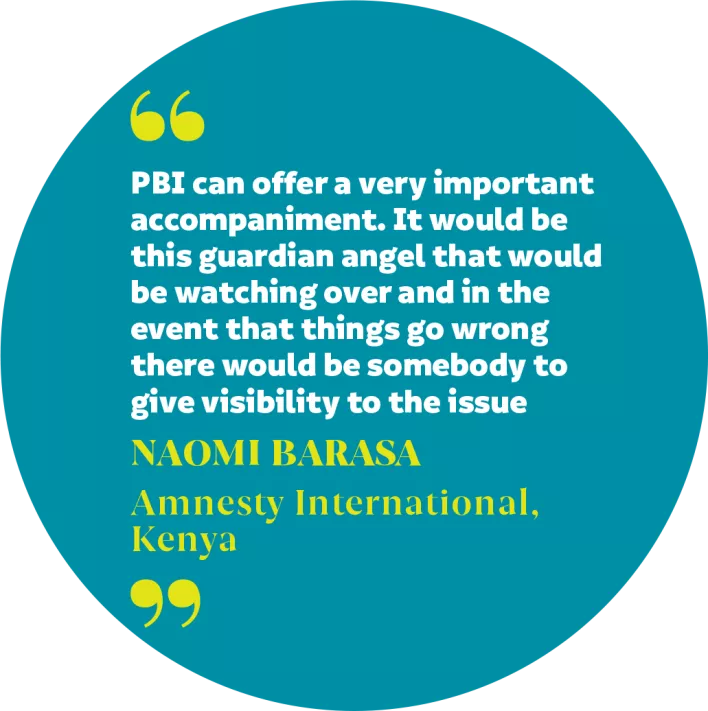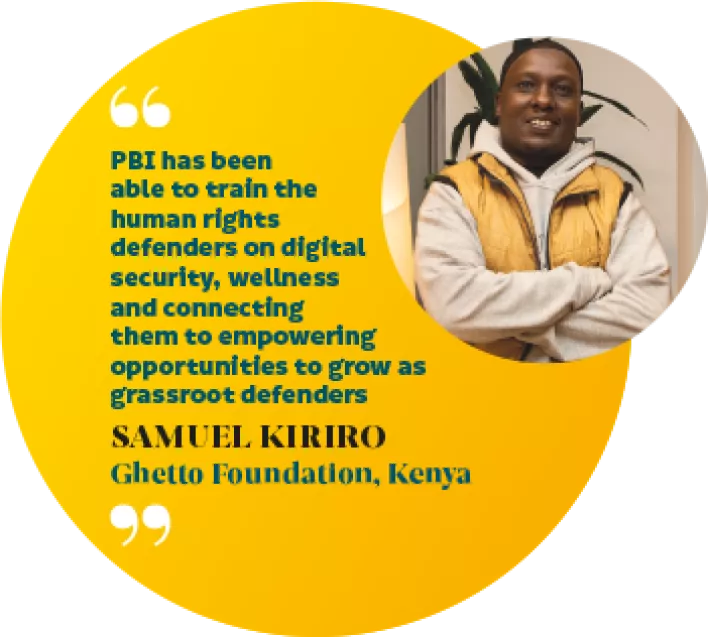Naomi Barasa


I am amazed by how many people are deeply committed to PBI and continue to be involved long after they volunteered with them. This has given me confidence that PBI really supports its volunteers personally and professionally, which to me is a really important attribute for an organisation to have.
Hannah Stoate
Kenya
Political, economic, and humanitarian crisis erupted in Kenya after former President Mwai Kibaki was declared the winner of the presidential election held on December 27, 2007. More than 1,100 people were killed, and up to 500,000 displaced, according to Human Rights Watch.

PBI’s mission is as relevant today as it was 20 or 40 years ago. In order to achieve fundamental social change in the world, the work of activists and human rights defenders is absolute key. What has impacted me most is to work directly with HRDs, their courage, perseverance, dedication to the cause is inspiring and a reason for me to keep supporting them
Sabine Guenther
Kenya, 2013-2014
I like the cultural exchange that is part of PBI’s work. PBI’s work is important in part because no one else is doing the same thing
Tom Short
Kenya
PBI’s work is important because they empower important human rights change from the ground up. By focusing on grassroots actors PBI is helping create space for these actors in political spheres, where they voices are direly needed.
Brandon McNally
Kenya, 2016-2017; 2019-now
Following a number of requests from exiled HRDs in the region, and recognizing the multitude of challenges they faced, PBI Kenya undertook a series of workshops to consider mechanisms through which international organizations and institutions could better support them.
In 2016, PBI Kenya developed a Women Human Rights Defenders Toolkit which offers resources and recommendations to help address the specific challenges of grassroots Women HRDs. A network of grassroots WHRDs from three of Nairobi’s urban settlements (Kibera, Mathare and Mukuru) work as toolkit organizers to help disseminate and further develop the toolkit.